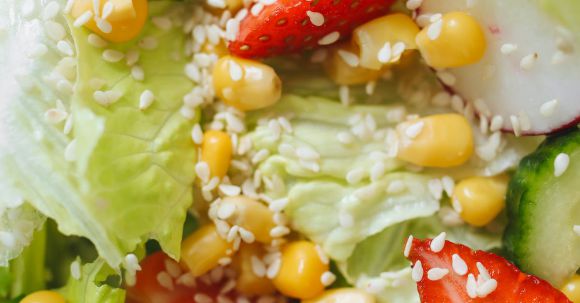In today’s fast-paced world, it can be challenging to maintain a healthy and balanced diet. However, creating a diet plan that is both balanced and nutritious is essential for overall well-being. A balanced diet can provide the right amount of nutrients, vitamins, and minerals necessary for the body to function optimally. In this article, we will explore some practical tips on how to create a balanced and nutritious diet plan.
Understanding the Basics of a Balanced Diet
Before diving into the specifics, it is important to understand what constitutes a balanced diet. A balanced diet consists of a variety of foods from all food groups, including fruits, vegetables, whole grains, lean proteins, and healthy fats. Each food group provides different essential nutrients necessary for the body’s growth and maintenance.
Planning Your Meals
To create a balanced and nutritious diet plan, it is crucial to plan your meals in advance. Start by making a list of the foods you enjoy from each food group. This will give you a foundation to build upon. Aim to include a variety of colors, flavors, and textures in your meals to keep things interesting and enjoyable.
Focusing on Fruits and Vegetables
Fruits and vegetables are an essential part of a balanced diet as they are rich in vitamins, minerals, and fiber. Aim to include a variety of fruits and vegetables in your meals to ensure you get a wide range of nutrients. Opt for fresh, seasonal produce whenever possible, as they tend to be more nutritious.
Including Whole Grains
Whole grains, such as brown rice, quinoa, and whole wheat bread, are an excellent source of fiber and other essential nutrients. They provide sustained energy and promote healthy digestion. Replace refined grains with whole grains in your meals to increase your intake of essential nutrients.
Choosing Lean Proteins
Protein is crucial for the growth and repair of tissues in the body. Opt for lean sources of protein, such as chicken, turkey, fish, tofu, and legumes. These foods are low in saturated fats and high in essential amino acids. Include a variety of protein sources in your meals to ensure you get all the necessary nutrients.
Incorporating Healthy Fats
Contrary to popular belief, not all fats are bad for you. Healthy fats, such as those found in avocados, nuts, seeds, and olive oil, are essential for brain health and the absorption of fat-soluble vitamins. Include a moderate amount of healthy fats in your diet plan to reap their numerous benefits.
Avoiding Excess Sugar and Salt
While a little sugar and salt in moderation is okay, excessive consumption can lead to various health problems. Limit your intake of sugary drinks, processed snacks, and foods high in sodium. Instead, opt for natural sweeteners like honey or maple syrup and use herbs and spices to flavor your meals.
Staying Hydrated
Water is essential for maintaining overall health and well-being. Aim to drink at least eight glasses of water per day. You can also include herbal teas and infused water to add variety and flavor. Avoid sugary drinks and excessive caffeine, as they can dehydrate the body.
In conclusion, creating a balanced and nutritious diet plan requires careful planning and consideration. By including a variety of foods from all food groups, focusing on fruits and vegetables, choosing whole grains and lean proteins, incorporating healthy fats, avoiding excess sugar and salt, and staying hydrated, you can create a diet plan that promotes optimal health and well-being. Remember, small changes can make a big difference, so start by making one healthy choice at a time.





